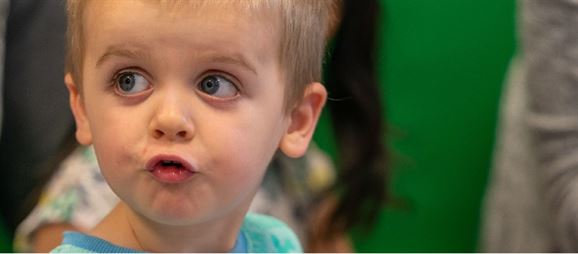
The Beginner's Guide to ADHD in Children

In a world where everything is so fast, the attention of our kids is easily distracted. It's difficult for them to stay focused and be still in one single activity. The result is that they are doing twenty things at once, but not very well. If you're reading this article, you're probably concerned that your child may have Attention Deficit Hyperactivity Disorder (ADHD). ADHD is common, with an estimated one in every nine children affected by it at some point in their lives. Let’s delve deeper into this topic.
What is ADHD?
Attention Deficit Hyperactivity Disorder (ADHD) is a disorder characterised by problems with attention span and hyperactivity. It affects the brain's ability to control behaviour, which leads to difficulties in daily life. ADHD is a common mental disorder that can be present in children, adolescents and adults.
What are Common Symptoms of ADHD?
The symptoms of ADHD can vary from person to person. In general, people with ADHD will have trouble staying focused on one thing for a long time; they may move around constantly or have trouble sitting still during class or work meetings; they might often interrupt conversations or blurt out answers before someone has finished asking their question; they might lose things easily because they're not organised enough to put them away properly when they're done using them - these are all examples of ways that having ADHD can affect your day-to-day life as an adult (or even as a kid).
Diagnosis of ADHD
ADHD is a brain-based disorder that affects attention, self-control, hyperactivity and impulsivity. Children with ADHD struggle to pay attention and control their impulses. It's a neurodevelopmental disorder that often lasts into adulthood. The causes of ADHD are not known but it is thought to be linked to genetics, as well as environmental factors such as stress and poverty.
The Diagnostic and Statistical Manual of Mental Disorders (DSM-5) is a publication from the American Psychiatric Association that provides guidelines for diagnosing mental disorders. According to the DSM-5, someone with ADHD will display six or more symptoms in two different areas: inattention, hyperactivity/impulsivity or both. Some examples include:
- Makes careless mistakes when completing tasks
- Has difficulty sustaining attention during play, work or school activities
- Does not appear to listen when spoken to directly
- Fidgets with hands or feet or squirms in seat when seated
- Leaves seat in classroom or office when remaining seated is expected
- Runs about or climbs excessively when it is not appropriate (in adolescents or adults only)
Evaluating a Child's HistoryThe evaluation of the child's history is a useful tool to determine whether he or she has ADHD. It can help identify factors that may have contributed to its development, such as family dynamics, exposure to environmental toxins or drugs, chronic illnesses, birth complications or premature birth.
Characteristic development refers to how a typical child develops in certain areas (for example: language-based skills). This can be compared with how your child develops in those areas. If there are significant differences between your child's characteristic development and their peers', it is worth considering whether they have some form of disability that could be related to ADHD.
Deciding whether a behaviour pattern is "normal" or "abnormal" depends on several factors - what other children do at various ages, how many times you've seen this behaviour before, how long your child exhibits this type of behaviour, etc.
ADHD, Language Impairment & Learning Disabilities
ADHD may be associated with language impairment and learning disabilities. There are no clear guidelines for these disorders, and it is important to consider several factors including the severity of the symptoms, age at onset, family history and comorbid conditions.
- How often do you hear this from your child? - "I can't do it."
- Does your child have problems with self-confidence? - "It's too hard."
- Is your child easily distracted or hyperactive? - "I keep forgetting things."
ADHD in Gifted Children
The symptoms of ADHD are often misunderstood in gifted children. Gifted children with ADHD may be misdiagnosed as having Conduct Disorder, Oppositional Defiant Disorder, or other disorders that can be confused with ADD/ADHD. They may also have a higher risk of being bullied and having other comorbid conditions such as anxiety and depression.
Gifted children with ADHD tend to be highly creative, intuitive, sensitive and independent thinkers but this can make them stand out from their peers which can lead to difficulties at school or home. It’s important for parents and carers of gifted kids with ADHD not only to recognise the symptoms but also look at their overall wellbeing so they can provide support where needed!
Other Important Notes on ADHD
ADHD is a medical condition. It is not a behaviour problem, discipline problem, or learning problem; ADHD is a neurological disorder that affects the way the brain processes information. Please keep in mind most children are not intentionally trying to misbehave or cause problems for their parents; however some children may exhibit certain behaviours because they have yet to develop the skills needed to manage their emotions without help from an adult caregiver.
Ultimately, if you suspect that your child is suffering from ADHD, the best thing to do is have them evaluated by a professional. They will be able to tell you for sure if your child has ADHD or not and can help you figure out how to make the most of your child’s life.
Articles
Build your awareness and get inspired with our researched articles on how you can strengthen your well-being
Popular Topics
An OTP has been sent to the email address
provided.
Please check your Inbox and Spam folders.

What Would You Like to Speak with a Specialist About?
Mental Fitness Journey starts Now!
Chearful Connects you with Top-tier Qualified Wellness specialists for the Price of a cup of Coffee!

Next Steps
- A Client Team member will reach out to you to schedule a session with the most suitable specialist.
- You will receive an email with a 10% Discount Code* for your 1st session.
- We invite you to Explore the Platform & Sign Up today! *Upto a maximum of $10 discount on a session purchased




 1427 Read
1427 Read







